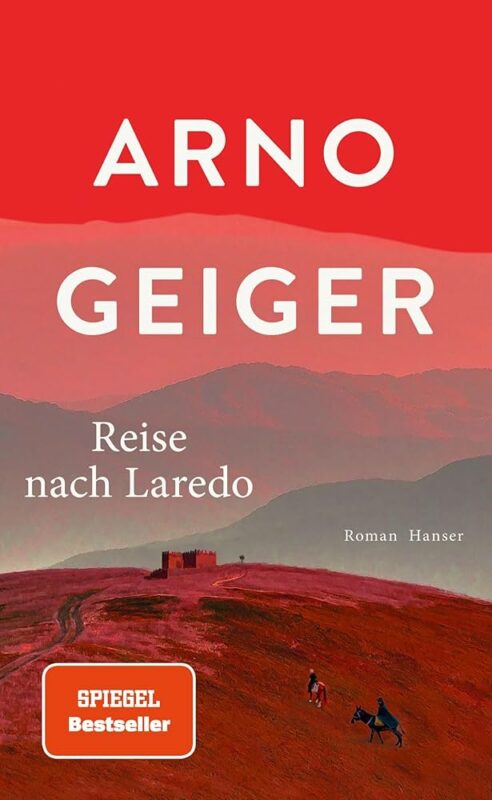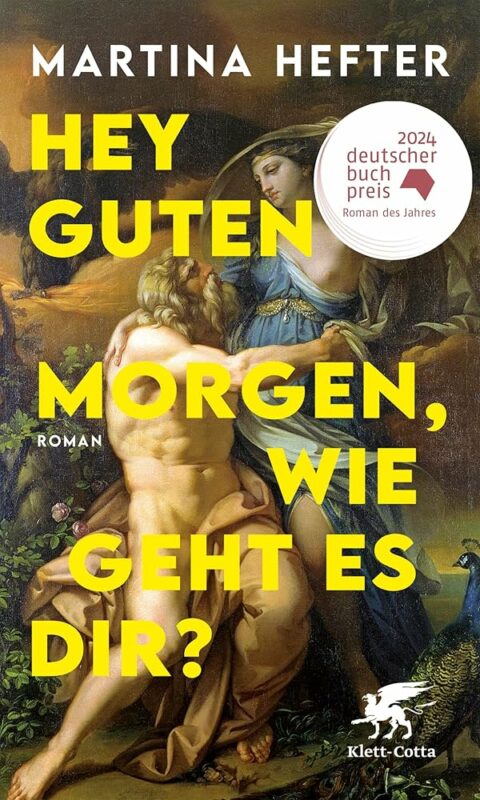
Second in our annual series of translators on their favourite reads of the year is Jamie Bulloch.
As each year passes, the proportion of books I read that are in German seems to grow. This year I’ve had more to choose from than ever and haven’t managed to narrow it down to fewer than five. Unlike last year, when all my three books could be loosely classified as autofiction, the selection here is quite eclectic.

I’ll begin with the most commercial of the titles, Ursula Poznanski’s Die Burg (Knaur). The setting here is a mediaeval castle, where a millionaire has installed a real-life escape game that, thanks to an AI, is tailor-made to each group which comes to play. What could possibly go wrong? Quite a lot, as you might imagine. The guinea pigs invited to test the game soon find themselves trapped in a living nightmare, at the mercy of the AI’s sadistic whims. This thriller is most timely, huge fun, brilliantly paced and with a great cast of characters who range from sympathetic to loathsome. I can’t wait to see the TV/film adaptation that surely has to follow.

Also a thriller of sorts is Maria Lazar’s Leben verboten! (DVB). Otherwise it is a world away from Poznanski’s novel, having been written in 1932. Set in the Great Depression, it begins with a banker, Ernst von Ufermann, missing his plane, which then crashes. Believed dead, Ufermann is able to begin his life again, which takes him to Vienna where he becomes entangled with Austrian National Socialists trying to bring down their government. When he eventually returns to Berlin, nobody believes it’s him, which is fortunate because his wife has remarried. There are parallels with Ulrich Boschwitz’s Der Reisende, not least of which is that both only have appeared in German in recent few years. It’s both an exciting and fascinating read, and is crying out to be translated into English.

I ended my round-up last year looking forward to Arno Geiger’s new book. Reise nach Laredo (Hanser) did not disappoint. It couldn’t be more different from his previous novel, Unter der Drachenwand, set on the home front in rural Austria during WWII and written as a literary collage that reads like a collection of primary source material. Reise nach Laredo takes as its subject Charles V (1500–58), once the most powerful man on earth, but who now, ridden with gout, has abdicated and withdrawn to a Spanish monastery to see out his remaining days. The novel describes an imaginary, fantastical trip he takes from the monastery with an illegitimate son of his, during which he experiences adventure and finally finds true friendship. The book is touching, funny, intelligent and stunningly written by an author at the top of his game.

Unlike in 2023, I made a really poor stab at working my way through the German Book Prize shortlist this year, though I should add in my defence that there were a couple of really lengthy tomes that made the job more difficult. Happily for me, one of the two I did finish was the eventual winner, Martina Hefter’s Hey guten Morgen, wie geht es dir? (Klett-Cotta), my fourth choice. The novel presents the life of Juno, a dancer and performance artist in her early fifties, who is beset by financial worries and also acutely aware of how she is aging, concerned by how much time she might have left in her life. She also worries about her disabled husband, Jupiter, a writer. At night she leads a sort of double life, exchanging messages with individuals who purport to be rich Americans, but are in fact scammers from Africa, trying to trick money from Western women. With one of these scammers, Benu, she develops a deeper relationship; as she finds out more about him her mistrust slowly ebbs, though she doesn’t reveal to him that she is married. The writing is tight and suffused with melancholy, though not without humour, and the relationships Juno has with both her husband and Benu are incredibly touching. A surprise winner? Maybe, but no less deserving for that.

My final choice, Husch Josten’s Die Gleichzeitigkeit der Dinge (Berlin Verlag), first came to me because I was attracted by its cover. This novel, set in Cologne, focuses on a group of friends: Jean, a chef and writer; Sourie, an eccentric regular at Jean’s restaurant; and their mutual acquaintance, Tessa. Sourie works in an old people’s home and seems obsessed by mortality. In fact, he’s harbouring a dark secret, which Jean uncovers after Sourie’s untimely death, as he sets himself the task of writing about his friend’s life. The unchronological structure of the book allows the author to tease out the narratives of her characters’ lives, and postpone the revelation of the truth. Josten’s quirky, witty, playful book, with its philosophical meditations and nod to metafiction, is hard to categorise, but this is what makes it a distinctive and hugely enjoyable read. I’m very glad I judged this one by its cover.
Jamie Bulloch is a British historian and translator of German literature, with over fifty published titles to his name, and twice winner of the Schlegel-Tieck prize. His recent translations include books by Sebastian Fitzek, Daniela Krien, Romy Hausmann and Arno Geiger.